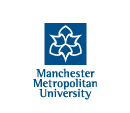
Challenging ‘outsider’ art: how are learning disabled artists informing contemporary arts?
This project explores the participation of people with learning disabilities in the world of contemporary arts. The focus will be on how artists who until recently might have been considered ‘outsider artists’ are collaborating within contemporary art and to consider the impact of this on arts practice and community connectedness.
Aims and Objectives
This timely study situated within and building upon current institutional research excellence areas (see below for more details will explore learning disabled artists’ participation in the arts across Manchester and the north of England. In the past, learning disabled artists have struggled to have their work taken seriously, however, there is a growing interest in the case for creative diversity and recognition that the participation of diverse people in the arts can enhance and enrich culture. This project builds on a growing interest in the participation of ‘outsider artists’ in the arts. The project offers a lens through which to consider a number of current debates in contemporary art / social art practice including: participation, making publics; disability studies, and disability politics. politics. It is built on existing university partnerships and will speak to the devolution Manchester agenda in term of services offered to people with learning disabilities in health, education and social care.
Specifically, this project aims to:
- explore the character of collaboration between learning disabled and other artists within contemporary art;
- consider how the presence of learning disabled artists influences collaboration
- explore how learning disabled artists inform the practice of artists
- explore how participation in the arts can create opportunities for the emergence of counter-cultural narratives that challenge images of learning disabled people which focus only on the exceptional, the sensational and the negative in their lives
- consider, if and how, participation in the arts creates opportunities for community connectedness that are different from other forms of community participation
- show case the art and the research, working alongside community partners, and to participate in the Sick Festival (2019)
- develop an evidence base to inform policy and practice across Greater Manchester, the north and nationally, for people with learning disabilities.
The aims of will be met through the following research phases
1. Co-produce research design
Establishment of stakeholder forum with Venture Arts for the duration of research with the ambition to co-produce research design with partners and representative stakeholders
Review of sources and development of a conceptual framework that links salient areas of enquiry (collaboration, artist development discourse; counter-culture/counter-publics; social art practice) together with appropriate methods/ methodologies (practice-as-research/artistic research, ethnographic methodologies, co-production/co-produced research design).
2. Experiential practice/data collection and testing period
A period of ‘fieldwork’ or ‘practice-led research period to meet the research aims above so to include:
- exploration of models of collaboration between learning disabled and other artists in contemporary art that presently exist (review of theory and practice in field);
- exploration of what happens at venture arts (participation, interview);
- co-production with stakeholders of what would best practice look like in light of findings);
- exploration of the resources that would be needed to achieve this: policy, political, economic, cultural, aesthetic.
3. Analysis
Analysis will be iterative and involve stakeholders and participants in workshops to address each of the research aims above.
4. Outcomes and outputs
The project will generate an exhibition to be displayed at Sick Festival, 2019, Manchester. This will strengthen links between the festival and the university.. Sick Festival is at the forefront of arts and health, taking the conversation into communities (sickfestival.com)
The research team will work with the student to develop pathways to impact for the research and to co-author high quality journal articles (REF 2021 +).
Required Qualifications:
Good honours degree (or equivalent) in the arts, social care, psychology, sociology, disability studies, education or related discipline.
Masters level qualification or equivalent professional experience.
The scholarship is open to UK and EU students.
Informal enquiries can be made to Cate Lawton, hpscresearchdegrees@mmu.ac.uk.
The supervisory team for this project will be Dr Amanda Ravetz, Prof Katherine Runswick-Cole, Mr Andrew Stevenson and Ms Brigitte Jurack. Specific queries regarding the research project will be forwarded to the supervisory team for response.
For more information, visit the MMU website.
The project start date is expected to be September 2017.

